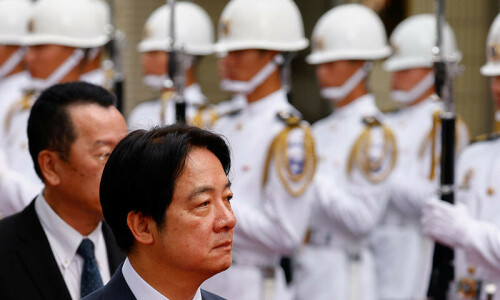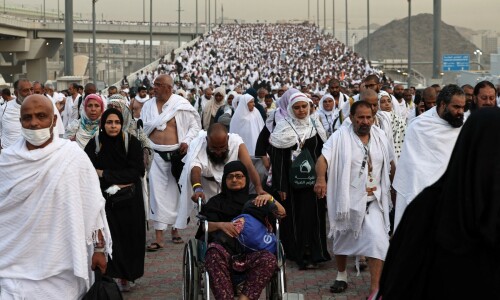WASHINGTON In reversing itself and blocking the release of photos of US military personnel abusing detainees, the Obama administration claims to have found a new legal argument. It has not.
What the administration has found is a way to pass the responsibility for releasing the pictures back to the courts. President Barack Obama was criticised for last month's release of memos authorising harsh interrogation techniques. If the photos were now made public over White House objections, the inevitable outrage might be deflected toward the courts and away from the president.
The administration also has found a way to avoid distribution of the photographs just before Obama travels to Egypt to speak directly to Muslims. Government lawyers had promised a federal judge to turn over the photos by May 28, a week before the president's trip.On Wednesday, White House press secretary Robert Gibbs said the president will try to block the court-ordered release of hundreds of photos showing US troops abusing prisoners; he reversed his position after military commanders warned that the images could stoke anti-American sentiment and endanger soldiers.
The same arguments were made last month against releasing so-called torture memos, Bush-era documents outlining often-harsh methods CIA agents could use when interrogating terror suspects. Obama released the memos anyway.
The pictures, said to show mistreatment of detainees in Iraq and Afghanistan, are the subject of a federal Freedom of Information Act lawsuit brought by the American Civil Liberties Union, an advocacy group. The government recently had agreed to release 44 photographs and said in court papers it was “processing for release a substantial number of other images,” for a total expected to be in the hundreds.
Gibbs said the president wants administration lawyers to challenge the photos' release based on national security. He said that argument was not used before.
“The president does not believe that the strongest case regarding the release of these photos was presented to the court,” he said.
The former Bush administration already argued against the release on national security grounds and lost. ACLU lawyer Jameel Jaffer said that argument “has been made by the government multiple times, and has been rejected unequivocally every time.”In September 2008, a three-judge federal appeals panel in New York wrote “It is plainly insufficient to claim that releasing documents could reasonably be expected to endanger some unspecified member of a group so vast as to encompass all United States troops, coalition forces, and civilians in Iraq and Afghanistan.”
The court also rejected another argument that Obama wants to revive. The White House says that releasing the photos to the public “would not add any additional benefit to our understanding of what was carried out in the past by a small number of individuals.”
Pressed by top military commanders, Obama concluded that he did not feel comfortable making the photographs public. Gibbs said the president was worried about inflaming already tense situations in Iraq and Afghanistan and making the US mission in those two wars more difficult.
White House concern probably is well-founded, given the reaction in 2004 to publication and broadcast of photos from the US-run Abu Ghraib prison that showed grinning US soldiers posing with detainees; some of the prisoners were naked, and some were held on leashes. The photographs incited protests domestically and abroad, particularly in Muslim countries.
By trying to keep the most recent batch of photos secret, Obama appears to be ignoring his pledge to be more forthcoming with information that courts have ruled should be made available to the public.
Gibbs said the latest decision does not contradict Obama's promises of transparency since details about investigations into detainee abuse are available on the Pentagon's website.
Obama's decision to fight dissemination of the photos was welcomed by Republican lawmakers and at least one military group that were among his critics when the interrogation memos were brought to light as part of another ACLU lawsuit.
This time he is kicking the decision back into court, where his administration still may be forced to hand over the photos.—AP











































Dear visitor, the comments section is undergoing an overhaul and will return soon.